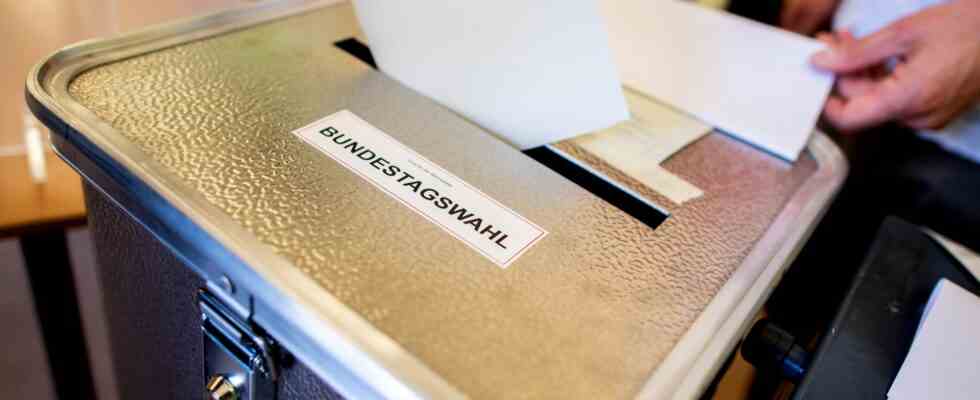Status: 07.11.2022 20:13
A lot went wrong in Berlin polling stations in the 2021 federal election. The election examination committee now recommended a partial repetition in 431 constituencies. The Bundestag must decide on this.
Due to numerous mishaps in the 2021 federal election in Berlin, the majority of the Bundestag’s election examination committee spoke out in favor of a partial repetition. This should apply to 431 of around 2,300 constituencies in the city. Both the first and the second vote should be re-elected. The decision in the committee was made with the votes of the coalition representatives of the SPD, Greens and FDP in the committee.
“The electoral glitches must not be swept under the table, they must have consequences,” said Johannes Fechner, chairman of the SPD parliamentary group in the committee. The Bundestag is expected to decide on the recommendation of the Election Review Committee at the end of the week.
Date and consequences unclear
According to the factions, however, a repetition could be challenged before the Federal Constitutional Court. When the partial repetition could take place is still open. It is also unclear what effect it could have on the composition of the Bundestag.
The traffic light representatives in the committee presented a corresponding proposal at the beginning of October. The CDU/CSU parliamentary group, on the other hand, advocated a more extensive new election in Berlin. However, since the traffic light coalition has the majority in the committee, a recommendation for a partial repetition had already been assumed.
Multiple elections in one day
The federal elections on September 26 last year overlapped with other elections in Berlin. The House of Representatives and the twelve district parliaments were re-elected on the same day. There was also a referendum on the expropriation of large housing groups.
Some ballot papers were missing or incorrectly issued. At times, some polling stations had to close and long queues formed in front of the entrances. Some polling stations were therefore even open until after the official closing at 6 p.m. Due to the Berlin marathon, roads were also closed and made it difficult, for example, to deliver ballot papers.

